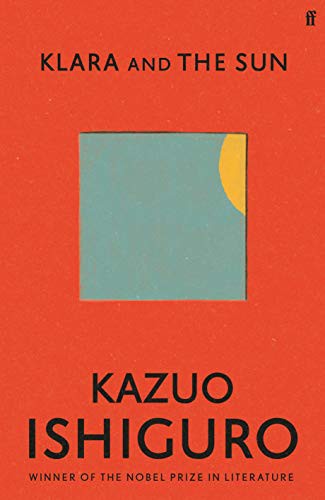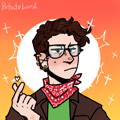Klara and the Sun
4 stars
Content warning Spoilers
1) "When we were new, Rosa and I were mid-store, on the magazines table side, and could see through more than half of the window. So we were able to watch the outside – the office workers hurrying by, the taxis, the runners, the tourists, Beggar Man and his dog, the lower part of the RPO Building. Once we were more settled, Manager allowed us to walk up to the front until we were right behind the window display, and then we could see how tall the RPO Building was. And if we were there at just the right time, we would see the Sun on his journey, crossing between the building tops from our side over to the RPO Building side."
2) "'Housekeeper,' I said. 'I have a plan, a special plan to help Josie. I'm not able to speak openly about it. But if I can go to the city with Josie and her mother, I may have the opportunity to carry it out.' 'Plan? Listen, AF. You make things worse, I fuck come dismantle you.'"
3) "'I think I hate Capaldi because deep down I suspect he may be right. That what he claims is true. That science has now proved beyond doubt there's nothing so unique about my daughter, nothing there our modern tools can't excavate, copy, transfer. That people have been living with one another all this time, centuries, loving and hating each other, and all on a mistaken premise. A kind of superstition we kept going while we didn't know better. That's how Capaldi sees it, and there's a part of me that fears he's right. Chrissie, on the other hand, isn't like me. She may not know it yet, but she'll never let herself be persuaded. If the moment ever comes, never mind how well you play your part, Klara, never mind how much she wishes it to work, Chrissie just won't be able to accept it. She's too... old-fashioned. Even if she knows she's going against the science and the math, she still won't be able to do it. She just won't stretch that far. But I'm different. I have... a kind of coldness inside me she lacks. Perhaps it's because I'm an expert engineer, as you put it. This is why I find it so hard to be civil around people like Capaldi. When they do what they do, say what they say, it feels like they're taking from me what I hold most precious in this life. Am I making sense?'"
4) "'Mr. Capaldi believed there was nothing special inside Josie that couldn't be continued. He told the Mother he'd searched and searched and found nothing like that. But I believe now he was searching in the wrong place. There was something very special, but it wasn't inside Josie. It was inside those who loved her.'"
5) "'Before you go, Manager. I must report to you one more thing. The Sun was very kind to me. He was always kind to me from the start. But when I was with Josie, once, he was particularly kind. I wanted Manager to know.' 'Yes. I'm sure the Sun has always been good to you, Klara.'"




